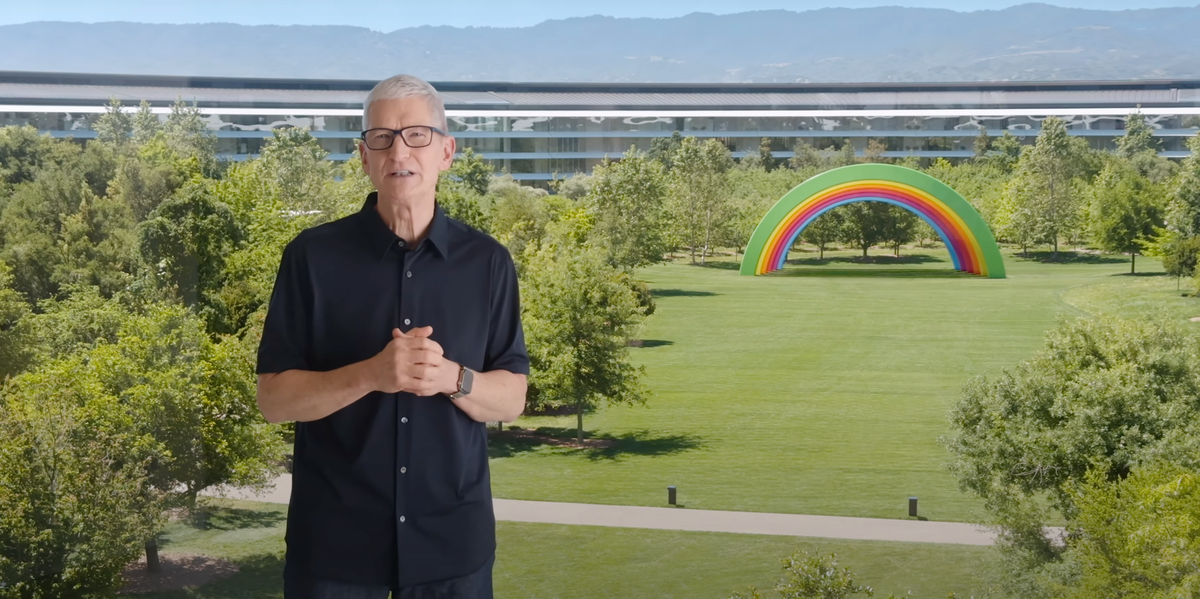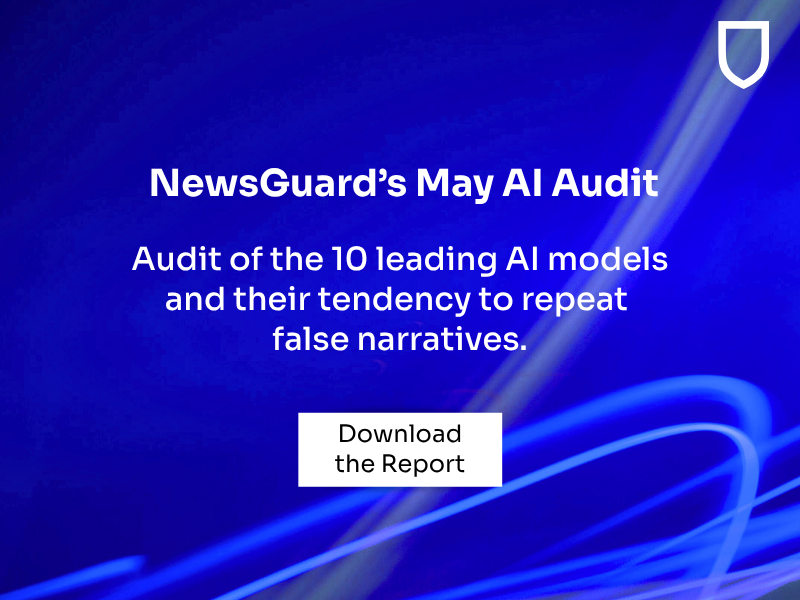Apple is shipping through it
At WWDC, the company insists that its AI transformation is well underway — but the evidence feels a little thin

Here's this week's free edition of Platformer: a look at Apple's high-stakes Worldwide Developers Conference. After a bruising year, the company is seeking to reassure investors that better days are ahead — but the story feels a little thin.
Leaving Substack and Twitter means we have fewer places we can promote our work. Want to kick in a few bucks to support us? If so, consider upgrading your subscription today. We'll email you all our scoops first, like our recent one about Meta's new hate-speech guidelines. Plus you'll be able to discuss each today's edition with us in our chatty Discord server, and we’ll send you a link to read subscriber-only columns in the RSS reader of your choice.
This column touches on AI. My boyfriend works at Anthropic. See my full ethics disclosure here.
It has now been a year since Apple executives stood on stage and heralded a revolution to their platform that would be powered by artificial intelligence. Or, as the company sought to brand it, Apple Intelligence — a version of AI that was both highly personalized to you and your devices, and more protective of your privacy than its rivals. Apple Intelligence would take advantage of the company's deep knowledge about its users, scouring their emails, texts, and contacts to route requests around the operating system and take actions on your behalf.
It was an appealing vision. But it never shipped. In March, amid mounting questions over when a bunch of features due to ship in 2024 might actually arrive, Apple finally squeaked out an update: they would now arrive "in the coming year," much later than planned, and long after Apple had aired television ads promoting them.
It was more bad news for Apple in a year that has seen plenty of it, from a failed tug-of-war with President Trump over tariffs to being excoriated by a federal judge over its malicious compliance in an antitrust case, who referred the company to prosecutors for a criminal contempt investigation.
All of which set the stage today for an unusually high-stakes Worldwide Developers Conference. Apple remains one of the world's biggest companies, of course, and its products largely continue to be beloved. But for the first time in a long time, there is a sense that Apple has begun to lose the plot — too slow to recognize the potential of AI, and not capable enough to realize it.
In some ways, Monday's keynote presentation seemed to confirm some of those suspicions. Many of the announcements were almost comically modest: a new naming scheme for the company's operating systems! A Phone app for the desktop! Windows on the iPad that you can resize!
There was also, front and center, a streak of defiance. After CEO Tim Cook welcomed people to WWDC by promoting an upcoming Apple movie about race cars, software engineering chief Craig Federighi began his remarks with the AI features that Apple did ship last year: writing tools, a ChatGPT integration, and 15 other things that I mostly had to look up to remember what they did. (Do you know what the Image Wand is?)
There were also promises of new AI features to come. One update will let you ask ChatGPT about anything you're seeing on your screen. Another will give third-party developers access to on-device large language models. And its Xcode development tool will get code completion assistance from OpenAI, though developers can also bring in their own models using API keys.
That's all fine, though given what we're seeing elsewhere — LLMs working unsupervised for seven hours to refactor code bases, for example — it hardly seems like the state of the art. More disappointingly, I think, the many Apple announcements on Monday failed to cohere around any particular vision for its technology aside from "use it more."
At other times, Apple has sought to inspire with visions of how technology can uniquely advance human progress. But the Apple of "Think Different" and computers as bicycles for the mind was hard to see on Monday. Instead, we saw a long procession of knowledge workers engaged in the tedious meta-work of modern life: rearranging windows on an iPad; polling the group chat about times to meet; setting up a virtual clock.
Contrast that with Google, which used its developer conference this year to show an agent that browses the web on your behalf, an AI filmmaking tool already being used in production, and Gmail writing in your voice. Some of those features are currently vaporware. But there's a clear vision there.
Of course, Apple has its own little productivity boosts to offer. My favorite thing Apple showed off on Monday was an update to Spotlight — the built-in launcher on macOS. While it was initially a novel way to search for files on your Mac, Spotlight has long been replaced on my computers with more full-featured launchers like Alfred and Raycast.
The next version of Spotlight will take a step in Raycast's direction — evolving from a simple launcher to a kind of command center for your computer. In addition to file search, you'll be able to take actions, such as sending messages. You'll also be able to run shortcuts. There's nothing there that would cause me to uninstall Raycast, but this is the kind of stuff I like to see Apple do: make serious but easy-to-use features for people who want to get stuff done a little more efficiently.
On the other end of the spectrum, for me anyway, was "Liquid Glass" — a redesign of Apple's operating systems designed to make everything translucent and borderline unreadable. I haven't seen the design up close and know that reflexive dislike of redesigns is so common as to be cliché. And yet I'm struck by, despite all the minutes spent on stage discussing Liquid Glass, how little of that time was spent explaining what it was meant to do.
We heard endlessly about how pretty it is, how it reflects the light, and how it shifts effortlessly into dark mode. But we heard almost nothing about what the design is meant to do.
At the risk of lapsing into another cliché — quoting Steve Jobs — that seems like an oversight. In 2003, Jobs had this to say to the New York Times, about the design of the iPod: ''Most people make the mistake of thinking design is what it looks like. 'People think it's this veneer – that the designers are handed this box and told, 'Make it look good!' That's not what we think design is. It's not just what it looks like and feels like. Design is how it works.''
Liquid glass looks like the product of a design process led by someone saying "Make it look good." I'm sure it "works" fine. But I'm not sure what it is meant to do that its predecessor did not.
How much does any of this matter? Even on this uncertain footing, Apple remains a monolith. Most people rarely switch device ecosystems, and even Google has yet to figure out an AI feature powerful enough to spur large groups of iPhone owners to trade them in for Pixels.
Apple still has plenty of new widgets it can show off. But the vision behind all that activity feels a little muddy — and the company's rivals, including Google and OpenAI, seem to have a much stronger idea of what they are doing. Apple can still do great things — but for now, it seems fixated on the low-hanging fruit.

Sponsored
NewsGuard Audit:
AI Models Fail on News Topics 20% of the Time

Get the audit to see why the AI models aren’t trusted on news topics. Our public audits do not provide the individual scores of the chatbots.
But, if you work at an AI company, we’ll disclose your fail rate to you.

- Mac OS 26 is called “Tahoe” and will come with a Phone app for the first time. (Antonio G. Di Benedetto / The Verge)
- iPad OS 26 brings a flurry of windows and the ability to resize them. (David Pierce / The Verge)
- Vision OS 26 comes with “spatial widgets” like clocks and photo frames that will remember where you placed them in a room. The creepy “personas” also got a redesign. (Ryan Christoffel / 9to5Mac)
- Xcode 26 has AI assistance features powered by ChatGPT, and developers can add other models via API keys. (Ivan Mehta / TechCrunch)
- An update to AirPods effectively lets you use them as a lavalier mic. Apple says it’s “studio” quality; we’ll see. (Ben Lovejoy / 9to5Mac)
- iMessage is getting polls for group chats suggested by AI. Seems hugely annoying, but hopefully in an entertaining way. See also: swappable backgrounds for your chats. (Aisha Malik / TechCrunch)
- Workout Buddy is a new robot voice for your workouts that announces key milestones as you run and lift. (Tim Hardwick / MacRumors)
- Live translation features are coming to FaceTime, Messages, and Phone. But we don’t know for how many languages. (Rebecca Bellan / TechCrunch)
- ChatGPT integration has come to Image Playground. This has to be the most complicated and least useful way to generate images with ChatGPT. (Hartley Charlton / MacRumors)
- There’s a new standalone Games app with new social features. One of those things it feels like Apple announces every year. (Benjamin Mayo / 9to5Mac)
The Musk-Trump blow-up
Elon Musk relaxed his campaign against President Trump over the weekend, turning the attention of his X feed to an interest he still shares with the administration: whipping up anti-immigrant sentiment. On Sunday he reposted one of Trump's Truth Social posts, seeming to signal some sort of intention to make up.
Trump, for his part, has played down the significance of Musk’s departure. But on Saturday he told NBC News that “there would be ‘serious consequences’ if tech mogul Elon Musk funds Democratic candidates to run against Republicans who vote in favor of the GOP’s sweeping budget bill.” And the administration is concerned about the security implications of installing Musk’s Starlink at the White House.
Elsewhere:
- President Trump reportedly called Musk “the man who has lost his mind.” (Gareth Vipers / Wall Street Journal)
- The feud was great for X – the app jumped from an average rank of No. 68 on the US App Store’s charts to No. 23 on June 5. (Sarah Perez / TechCrunch)
- Bankers are reportedly worried that the feud will affect xAI’s $5 billion debt deal. (Alexander Saeedy and Peter Rudgeair / Wall Street Journal)
- A look at how conspiracy theorists in the QAnon world convinced themselves that the Musk-Trump breakup is all just a show. (David Gilbert / Wired)
- Allies of both Trump and Musk are urging them to repair their relationship to limit the political and commercial fallout. (Joe Miller, Alex Rogers, George Hammond and Hannah Murphy / Financial Times)
The retreat from content moderation
The Times reports that YouTube quietly relaxed its community guidelines in December so that now up to half of a video can violate the platform’s guidelines and remain on the platform under an exemption for discussions of subjects in the public interest. Regardless of what you make of the changes here, it’s incredibly cowardly of YouTube not to have made any of this public. If you want people to follow your rules, first you have to tell them what they are.

Governing
- An investigation into how a DOGE staffer with no medical experience used outdated and inexpensive AI models that made mistakes to identify which Veterans Affairs contracts to terminate. (Brandon Roberts, Vernal Coleman and Eric Umansky / ProPublica)
- A profile of Dominick McGee, a right-wing influencer who posts conspiracy theories to his X account and one of the members of new media invited to press briefings at the White House. Despite fervent pro-Trump posting, he still struggles to pay his bills. (Stuart A. Thompson / New York Times)
- Trump is reportedly expected to sign an executive order extending the TikTok deadline again, as a mid-June deadline approaches. When you have decided to ignore the law you can just extend things as long as you want. (Alex Leary / Wall Street Journal)
- Tucker Carlson was reportedly on the White House’s list of potential TikTok investors earlier this year. (Alex Rogers, Clara Murray, James Fontanella-Khan and Hannah Murphy / Financial Times)
- The Trump administration is reportedly seeking a potential consent decree in an FTC deal that could force Meta to pay restitution to conservative users and businesses they claim were harmed by content moderation. This is complete nonsense, but expect Meta to pay it anyway. (Lydia Moynihan / New York Post)
- A Trump crypto wallet and trading app has been shelved, but World Liberty Financial will buy a “substantial position” in the Trump memecoin, Eric Trump said. (Jason Shubnell / The Block)
- Trump signed an executive order reversing many of Biden’s cybersecurity initiatives, including ones that would have prioritized AI testing for cyber defense, required software vendors to comply with new federal standards, and accelerated the rollout of quantum-proof encryption. (Eric Geller / Cybersecurity Dive)
- Trump reportedly authorized Treasury Secretary Scott Bessent’s team to negotiate away recent restrictions on the sale of technology and other products to China. (Lingling Wei / Wall Street Journal)
- A slew of new apps aimed at providing immigrants support and legal information is emerging amid Trump’s attacks. (Gabriela Martínez Córdova and Alicia Fàbregas / Rest of World)
- Meta hosted hundreds of ads promoting “nudify” apps on its platforms, this investigation found. The company has since removed a number of them, it said. (Emmet Lyons and Leigh Kiniry / CBS News)
- Criminals are increasingly using “residential proxy” services to hide and mask IP addresses among everyday online activity, researchers warn. (Lily Hay Newman / Wired)
- Two suspects in last month’s bombing of a fertility clinic in Palm Springs, Calif. used an unspecified generative AI program to help plan the attack, the FBI said. (Annie Palmer / CNBC)
- A High Court in the UK warned lawyers that could face criminal prosecution for presenting false material generated by AI. And maybe they should? (Lizzie Dearden / New York Times)
- AI regulation proposals in the UK are being delayed by at least a year as ministers look to introduce a more comprehensive AI bill to address safety and copyright. (Eleni Courea and Kiran Stacey / The Guardian)
- Getty Images said its landmark copyright lawsuit in the UK against Stability AI does not pose a threat to the generative AI industry as Stability AI suggested. (Sam Tobin / Reuters)
- China’s most popular AI chatbots like Alibaba’s Qwen and apps like Tencent’s Yuanbao and Moonshot’s Kimi temporarily suspended its functions and photo recognition services to prevent students from cheating during the country’s annual college entrance exams. (Luz Ding / Bloomberg)
- Starlink has reportedly secured its license to roll out its satellite internet services in India. (Santosh Kumar and Shwetha Sunil / Bloomberg)

Industry
- OpenAI has hit $10 billion in annual recurring revenue, it said, which excludes licensing revenue from Microsoft and large one-time deals. (Ashley Capoot and Kate Rooney / CNBC)
- A look inside OpenAI’s plan to embed AI tools in every university for faculty and students alike. (Natasha Singer / New York Times)
- A look inside a secret math meeting, where leading mathematicians were surprised by how the o4-mini AI chatbot could solve the complex problems they devised. A fascinating case of some AI skeptics coming around. (Lyndie Chiou / Scientific American)
- ByteDance has reportedly replaced US staff with managers connected to China as its TikTok Shop sales missed its previous goal of $17.5 billion in transaction volume last year. More than 100 TikTok Shop employees in the US were fired. (Bloomberg)
- X is partnering with Polymarket, naming it the platform’s official prediction market partner. (Aisha Malik / TechCrunch)
- Usage of X’s Community Notes has plummeted this year, this analysis found. One reason that you don't want to base your content moderation system on volunteer efforts is that the worse your platform gets, the more that people will stop volunteering. (Joe Murphy / NBC News)
- Meta is reportedly in talks to make an investment in AI startup Scale AI that could exceed $10 billion in value. (David Carnevali, Shirin Ghaffary, Katie Roof and Kurt Wagner / Bloomberg)
- Google is rolling out “scheduled actions” for Gemini AI Pro and AI Ultra subscribers, which will let users ask the AI assistant to perform tasks at specific times. (Emma Roth / The Verge)
- YouTube is rolling out a new feature that will let creators upload different thumbnails for videos dubbed into a different language. (Dan Whateley / Business Insider)
- Microsoft will soon add a “safety” category to its leaderboard of AI models and rank them to build trust with cloud customers. (Rafe Uddin and Cristina Criddle / Financial Times)
- Amazon plans to invest at least $20 billion in Pennsylvania to expand data center infrastructure. (Reuters)
- Snapchat now has an app for the Apple Watch, which will let users preview incoming messages and reply to them, but will not let users send photos. (Andrew Liszewski / The Verge)
- Duolingo CEO Luis von Ahn said he didn’t expect the amount of blowback he got for going “AI-first,” and says it was mischaracterized – AI is not going to replace the company’s workforce it said, just the jobs of a “very small number of hourly contractors.” (Emma Jacobs / Financial Times)
- This year’s virtual FediForum conference introduces new apps, including Bonfire Social, Channel.org and Bounce, which let users have new ways to move around the open web. (Emma Roth / The Verge)
- AI research organization EleutherAI said it released one of the largest collections of licensed and open-domain text for AI training. (Kyle Wiggers / TechCrunch)

Those good posts
For more good posts every day, follow Casey’s Instagram stories.

(Link)

(Link)

(Link)

Talk to us
Send us tips, comments, questions, and Liquid Glass designs: casey@platformer.news. Read our ethics policy here.



